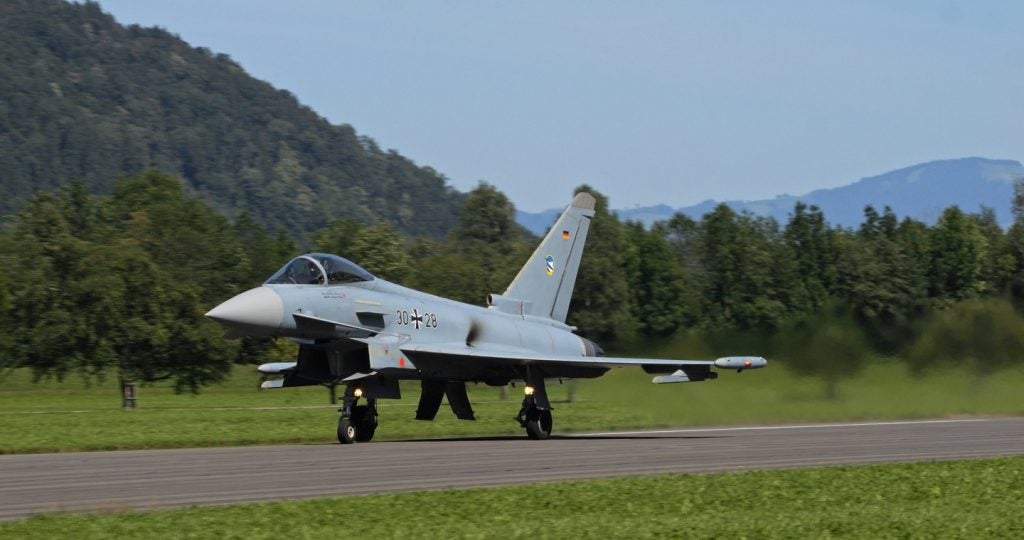
Researchers from Harvard – supported by the Massachusetts Institute of Technology, QuEra Computing, Caltech, and Princeton, while funded by the US Defense Advanced Research Projects Agency (DARPA), have made a breakthrough in quantum computing (QtC) technology.
Working under DARPA’s ‘Optimisation with Noisy Intermediate-Scale Quantum devices’ (ONISQ) programme, the team created the first ever quantum circuit with logical qubits, a key discovery that could accelerate fault-tolerant quantum computing.
QtC uses technology that abides by the laws of quantum mechanics to solve problems too complex to solve on classical computers. Just like classical binary used in today’s computers, qubits operate in two distinct states: zero or one.
So far, no QtC has been invented that can achieve better results than a classical computer in the same amount of time.
Preparing for QtC in defence
Though current QtC technology lacks sufficient maturity to warrant more widespread global investment, GlobalData’s thematic research report on Quantum Computing in Defence (2023) identifies several areas in which QtC has the potential to bring transformative change which will radically alter the conduct of future conflicts.
Quantum capabilities are theorised to have applications in sensing, communications, computing, navigation, and electronic warfare, with the unique properties of quantum mechanics enhancing situational awareness and accelerating decisions throughout the various domains of modern warfare.
How well do you really know your competitors?
Access the most comprehensive Company Profiles on the market, powered by GlobalData. Save hours of research. Gain competitive edge.

Thank you!
Your download email will arrive shortly
Not ready to buy yet? Download a free sample
We are confident about the unique quality of our Company Profiles. However, we want you to make the most beneficial decision for your business, so we offer a free sample that you can download by submitting the below form
By GlobalDataAccording to the GloablData, the US Department of Defense conducted its first workshop on QtC from as early as 1995. More recently, the UK Ministry of Defence published its Quantum Strategy in March 2023 and acquired its first QtC, the ORCA PT-1.
Preparing for such a quantum revolution, the UK Minister of the Armed Forces James Heappey, speaking at the Chief of the Air Staff’s Air and Space Power Conference in the summer this year, emphasised the importance of modularity in Royal Air Force systems, pointing to “the arrival of quantum. The danger is that [today’s] generation of planes, none of them have quantum computing in yet, all of them will be in service when quantum computing arrives.”
ONISQ’s breakthrough
Since 2020, the ONISQ programme has developed a hybrid concept to combine “noisy”— or error-prone — quantum processors with classical systems focused specifically on solving optimization problems of interest to defense and commercial industry.
The Harvard research team focused on exploring the potential of ‘Rydberg qubits’, and in the course of their research made a major breakthrough: the team developed techniques to create error-correcting logical qubits using arrays of “noisy” physical Rydberg qubits.
Logical qubits are a critical missing piece in the puzzle to realise fault-tolerant quantum computing. In contrast to error-prone physical qubits, logical qubits are error-corrected to maintain their quantum state, making them useful for solving a diverse set of complex problems.
Harvard has built quantum circuits with around 48 Rydberg logical qubits to date in their laboratory, the largest number of logical qubits in existence.
“Rydberg qubits have the beneficial characteristic of being homogenous in their properties – meaning each qubit is indistinguishable from the next in how they behave,” said Dr Mukund Vengalattore, ONISQ programme manager in DARPA’s Defense Sciences Office.
“The homogeneity of Rydberg qubits allows them to scale rapidly and also allows them to be manipulated and moved around easily using lasers on a quantum circuit. This overcomes the current error-prone methods of performing qubit operations by having to connect them sequentially, which propagates errors throughout the chip.”






